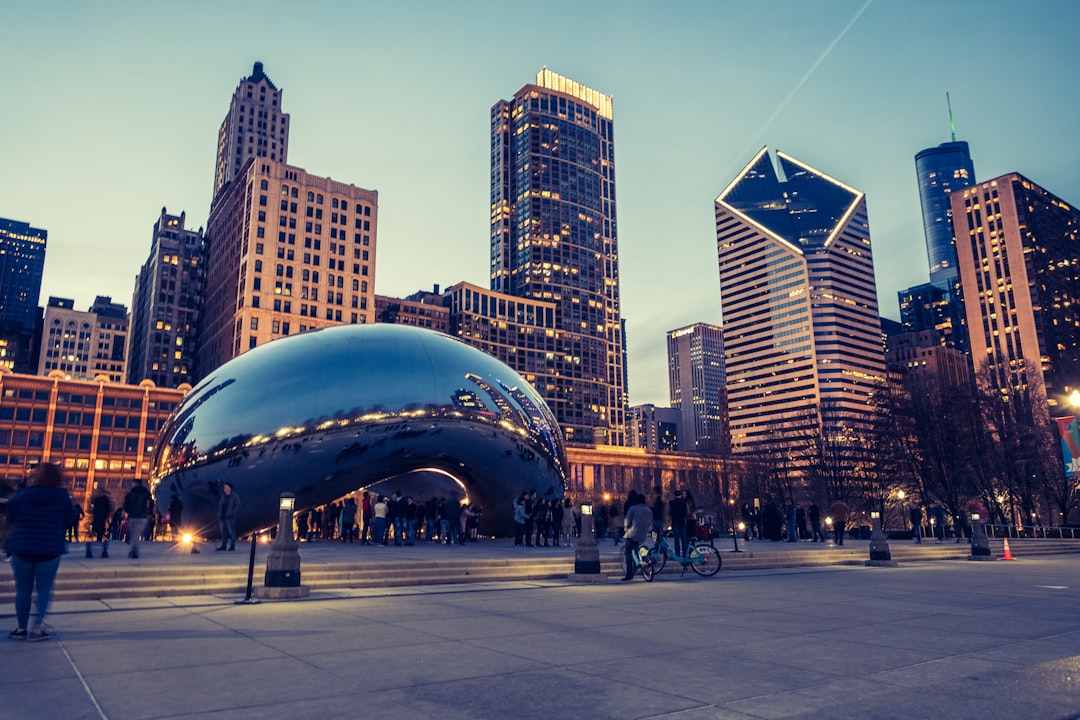Chicago residents face a surge in spam calls, prompting a need for solutions. Local news outlets play a crucial role in raising awareness about spamming tactics and providing actionable tips on How to Stop Spam Calls Chicago. They empower citizens with knowledge, facilitate community engagement, and collaborate with law enforcement to combat scammers. Measuring success through consumer complaints and surveys shows positive changes, indicating the effectiveness of these initiatives in mitigating spam's impact.
In today’s digital age, no region is immune to the scourge of spam calls, particularly bustling metropolises like Chicago. This article explores the effectiveness of local news outlets in raising awareness about this pervasive issue and its impact on residents’ lives. We delve into strategies these outlets employ, from investigative reporting to community engagement, to educate citizens on how to stop spam calls in Chicago. By examining local efforts, we aim to highlight best practices that can enhance spam mitigation across the city.
Understanding the Spam Call Problem in Chicago

Chicago, like many urban centers across the globe, grapples with an increasing surge in spam calls. This nuisance has become a significant concern for residents, as unwanted phone calls from unknown sources not only disrupt daily life but also pose potential risks to privacy and security. The volume of spam calls targeting Chicagoans has prompted many to seek effective solutions to mitigate this problem.
The issue is multifaceted, requiring a comprehensive understanding of the methods used by spammers to target local residents. From automated voice messages to fraudulent offers, these calls can be particularly insidious. To combat this growing challenge, local news outlets play a crucial role in raising awareness about how to recognize and stop spam calls in Chicago. By providing actionable tips and keeping the public informed about new tactics employed by scammers, these outlets empower citizens to take proactive measures against unwanted phone traffic.
The Role of Local News Outlets in Awareness Generation

Local news outlets play a pivotal role in raising awareness about emerging issues, including the growing problem of spam calls. By providing timely and accurate information, they empower Chicago residents with knowledge on how to stop spam calls effectively. Through in-depth reporting, these outlets can shed light on the latest scams, tactics employed by spammers, and available resources for victims. They serve as a trusted source for community members seeking guidance on navigating this modern nuisance.
In addition, local news has the advantage of connecting directly with its audience, fostering a sense of community engagement. They can initiate public discussions, offer practical tips on how to identify and block spam calls, and encourage citizens to share their experiences. This interactive approach enables residents to stay informed and take proactive measures, contributing to a collective effort to mitigate the impact of unwanted phone spam in Chicago.
Effective Strategies for Reporting Spam Calls

Local news outlets play a pivotal role in educating communities about spam calls and their potential risks. When reporting on this issue, they can employ several effective strategies to raise awareness and empower residents. One key approach is to provide clear and concise guides on how to identify and report spam calls, including step-by-step instructions on blocking numbers and using available tools like the National Do Not Call Registry.
Additionally, news outlets can highlight real-life examples of spam call scams, sharing stories and experiences from local folks to illustrate the common tactics used by scammers. By doing so, residents in Chicago and other areas can better understand the red flags associated with suspicious calls, encouraging them to take proactive measures to stop spam calls effectively.
Community Engagement and Its Impact on Spam Mitigation

Local news outlets play a pivotal role in fostering community engagement, which is an essential aspect of mitigating spam calls in Chicago and beyond. By keeping residents informed about emerging trends and tactics used by scammers, these outlets empower individuals to take proactive measures against unwanted telephone intrusions. Through public service announcements, investigative reports, and collaborative efforts with local law enforcement, news media can raise awareness about the prevalence and impact of spam calls on daily life.
Engaged communities are better equipped to identify suspicious activities and report them promptly. This collective vigilance acts as a powerful deterrent for scammers, who often adapt their techniques based on local knowledge and community response. As such, effective community engagement becomes a critical tool in the fight against spam calls, offering a sustainable solution to protect residents from relentless and deceptive communication practices.
Measuring Success: Evaluating Local Efforts Against Spam Calls

Measuring success is a crucial step in evaluating local news outlets’ impact on combating spam calls in areas like Chicago. While reducing unwanted phone calls is a complex task, there are several methods to assess how effective these outlets have been in raising awareness. One way is by tracking changes in consumer complaints related to spam calls over time. If there’s a notable decrease in such complaints from local communities, it indicates that the efforts of news outlets and other awareness campaigns have resonated with residents, empowering them to take action against spammer activities.
Additionally, surveying Chicago residents can provide valuable insights into their perception of how well-informed they are about how to stop spam calls. Positive changes in survey responses, suggesting a better understanding of countermeasures, would be a strong indicator of successful local initiatives. By combining these quantitative and qualitative methods, it becomes possible to gauge the overall progress made in mitigating the impact of spam calls on Chicago’s residents.






